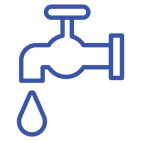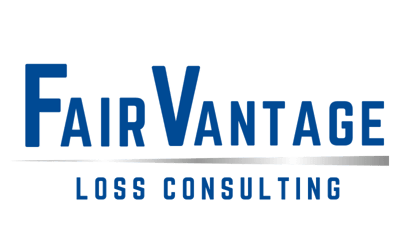Types of Water Damage TYPICALLY Covered by Insurance (unless exclusion or other policy limitation applies)
Insurance policies typically cover sudden and accidental water damage but typically exclude issues related to wear, maintenance, or gradual deterioration.
✅ Burst Pipes & Plumbing Failures – If a pipe bursts suddenly or a plumbing system malfunctions, your policy typically covers resulting damage.
✅ Appliance Leaks – Sudden leaks from water heaters, dishwashers, or washing machines may be covered.
✅ Roof Leaks (Storm-Related) – If a storm damages your roof, causing interior water damage, your policy may provide coverage.
✅ HVAC System Failures – Damage from air conditioning or heating system leaks may be included, depending on the policy.
✅ Accidental Overflows – Coverage often applies to accidental overflows from bathtubs, sinks, or toilets.
Common Exclusions
🚫 Flooding – Standard homeowners’ policies do not cover flood damage; a separate flood insurance policy is required.
🚫 Sewer Backup – Unless you have a specific endorsement, damage from sewer backups is typically excluded.
🚫 Negligence & Wear-and-Tear – Gradual leaks, poor maintenance, or long-term water exposure are often denied.
🚫 Mold Damage – While some policies offer limited mold coverage, most exclude it unless caused by a covered event.
🚫 Vacant and Rented properties can often have water damage exclusions or other limitations. Check the policy!
Steps to Filing a Water Damage Claim
1️⃣ Act Fast – Notify your insurance company promptly. Timely reporting helps prevent complications or delays in the claim process.
2️⃣ Mitigate Further Damage – Take immediate steps to stop the water source and prevent additional loss, such as turning off water supply lines or using temporary tarps.
3️⃣ Document Everything – Take photos and videos of the damage before any cleanup. Keep receipts for emergency repairs or temporary housing costs.
4️⃣ Review Your Policy – Understand what’s covered under your policy, including limits, deductibles, and exclusions.
5️⃣ Work with an Adjuster – The insurance company will send an adjuster to assess the damage. Be prepared with estimates from contractors if necessary.
6️⃣ Negotiate If Needed – If you believe the settlement doesn’t reflect the full scope of damage, you may request additional review. A FairVantage expert can help support a well-documented and accurate resolution.
How FairVantage Helps You
Navigating a water damage claim can be overwhelming, especially when coverage details or damage assessments are unclear.
✔️ Support a fair and well-documented resolution if questions arise about the claim value.


